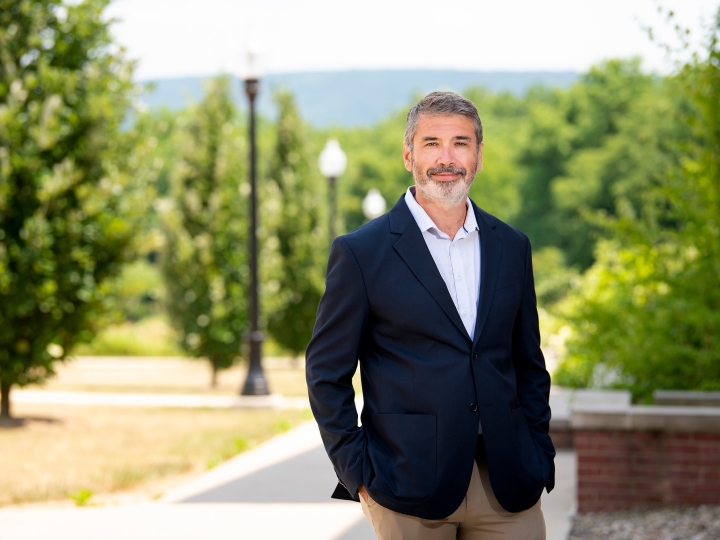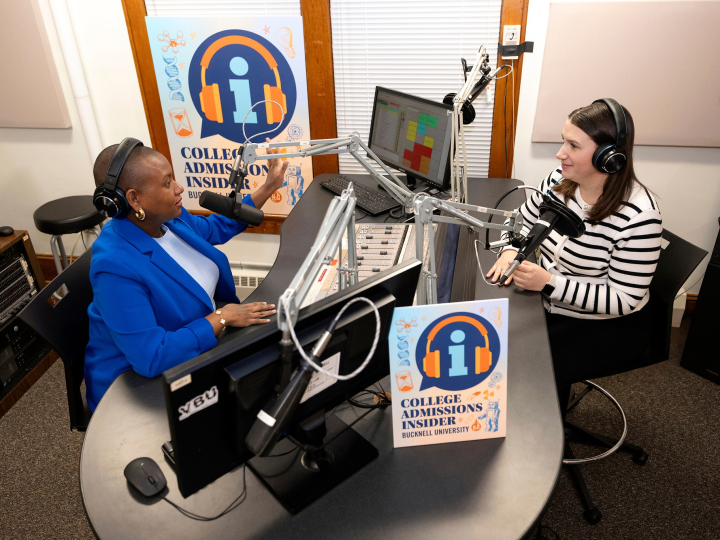Professor Elizabeth Durden to Share $200K Grant For Immigration Study
August 10, 2016
As the 2016 presidential campaign heads into its final three months, immigration promises to be a thoroughly debated topic through Election Day and beyond.
Though immigration policy falls under the federal government's purview, immigration-related laws differ from state to state. Such contrasting laws and policies are largely due to the variations of distinctive history, culture and views of each state's population toward immigration, as reflected through elected officials.
In a study titled "States of Immigration," Bucknell University Professor Elizabeth Durden, sociology & anthropology, is researching these variations in collaboration with Professors Daniel Tichenor, University of Oregon and Robin Dale Jacobson, University of Puget Sound. The team has received a $200,000 Collaborative Grant from the National Endowment for the Humanities (NEH) to further this study. The award is specifically earmarked for collaborative projects across different universities.
"We're looking at various immigration policies in American states and what roles states have played socially, culturally and politically in the integration of various immigrant groups," said Durden, who has studied various aspects of immigration throughout her career. "We're taking both a historical and present-day perspective and looking at how states approach immigration differently and how they may alter how they look at immigrants — both documented and undocumented — over the span of a single or multiple generations.
"We are going beyond a simple political or 'blue-red' explanation and deeply exploring the multiple roles of region, economics, demographics and state identity on immigrant inclusion."
An example of how how that immigration approach may be altered is California. Once a proponent of Chinese exclusion and the home of Proposition 187 — a 1994 ballot initiative that barred undocumented immigrants from accessing various state services — California is now seen as the bastion of immigrant inclusion. It recently issued driver's licenses for undocumented immigrants, provided state-funded healthcare for immigrant children and erased the word 'alien' from the state's labor code.
According to Durden, California and other high-population states such as Texas, New York and Illinois have received most of the attention when scholars have studied state-level immigration policies.
This study will focus specifically on four states — Arizona and New Mexico and Maryland and Virginia — that haven't received much academic attention related to immigration. Durden said these two pairings of states were chosen because they can make for some interesting contrasts with each other.
For example, Arizona and New Mexico both share a border with Mexico, became states a month apart in 1912 and have large Hispanic populations. Yet their approach to immigration has been drastically different. In 2010, Arizona passed SB 1070, part of which the U.S. Supreme Court struck down in 2012, but which was widely considered one of the strictest anti-illegal immigration measures ever. By contrast, at about the same time, New Mexico expanded undocumented immigrants' rights by giving them access to driver's licenses and higher education.
"We wanted to look at other states to add to the conversation and use them to compare and contrast how their immigration trajectories have evolved over time and explore issues of state culture and how that may impact how immigrants are received, integrated or excluded from the state," said Durden.
The NEH's support will also provide four summer research stipends for Bucknell undergraduates, two per year over the next two years. This summer, both Maggie Carlson '18 and Louis Tobias '17 assisted Durden with this project through Bucknell Institute for Public Policy grants.
"As a political science and women's & gender studies major, I've developed an interest in the demographics of these populations, as well as the individual stories of immigrants and their families," said Carlson. "The Supreme Court's deadlock over President Obama's executive action on immigration this summer made my research feel more relevant than ever."
Though the study was already underway prior to the NEH committing additional funding, Durden said its support will allow the team to conduct more thorough, deep and complete research, while also expanding the number of states being studied.
"I think this project has the opportunity to really shed a much more nuanced light on not only the integration of immigrants into society but also the role the states play in that process," Durden said. "The role of states in immigration policy has been widely overlooked and we feel we can make a real contribution to how our society understands the role of the immigrant in our country. I think that is of great value for where we are today in terms of some of the political rhetoric concerning immigration."

